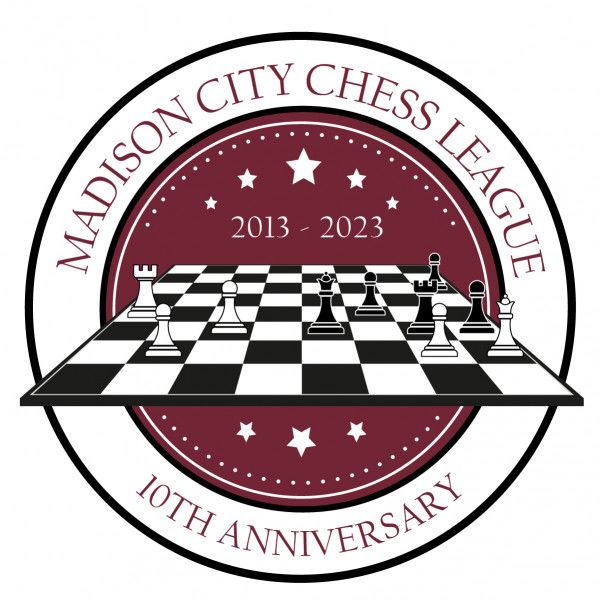A Beginner's Guide to Chess Tournaments
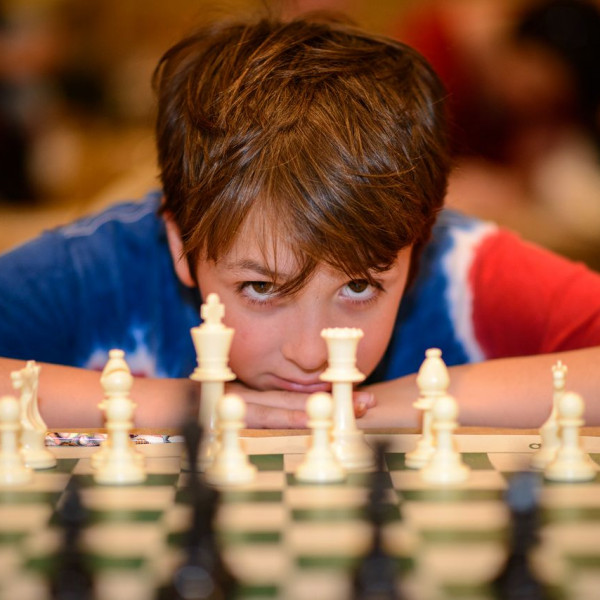
Your child comes home one day and announces, "I want to compete in a chess tournament." If your child is part of a school chess club or team, the coach will help prepare your child for the tournament. If your child is not a member, sign your child up to join chess club at school to help learn the fundamentals of the game.
Before going to your first chess tournament, there are a few things parents need to know. A chess tournament will typically last all day, and your child usually will play four or five rounds. This will surprise most parents who are accustomed to round-robin or single or double elimination tournaments in other sports. You should bring a lawn chair for your comfort and pack healthy snacks for your kids. In some tournaments, the rounds start at approximated times that are designated by the tournament director. Other tournament rounds begin as soon as the last one is over and all games in that round are concluded, so time for lunch can be somewhat unpredictable. The organizer will inform the participants at the beginning of the day which format will be used and will make an announcement as to whether a lunch break will be observed.
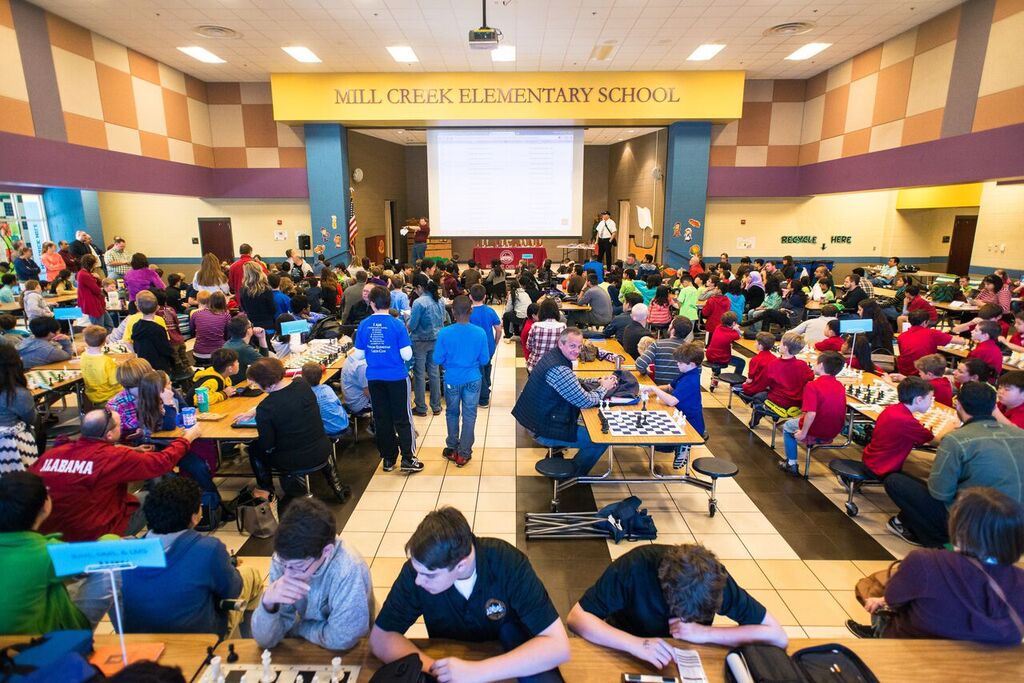
Here is some further guidance.
Try a Non-Rated Chess Tournament First
Many local and even national chess tournaments offer a non-rated section alongside rated sections. A non-rated chess tournament is a lot like a practice tournament in that the results do not get reported beyond the local awards ceremony and local media. By contrast, all rated tournament results are reported to the United States Chess Federation (USCF) which tracks each individual competitor's performance and assigns a rating based on the tournament performance. A complete explanation of the USCF rating system can be found here.
If a non-rated tournament is available, that is the best way for a beginner to try a first tournament--by playing with other students who also are unrated. Tournament directors are also more lenient with unrated players competing in non-rated sections as the results will not be reported to the USCF, and it is understood that first-time players may not be as familiar with all tournament rules.
The first two tournaments of the school year in Madison have Non-Rated sections: Summer Knights at Rainbow Elementary (August) and MCS Fall Scholars Chess Tournament at Madison Elementary (Sept or Oct). These tournaments are conducted by the Madison City Chess League (MCCL) which provides chess sets and clocks for all of its tournaments.
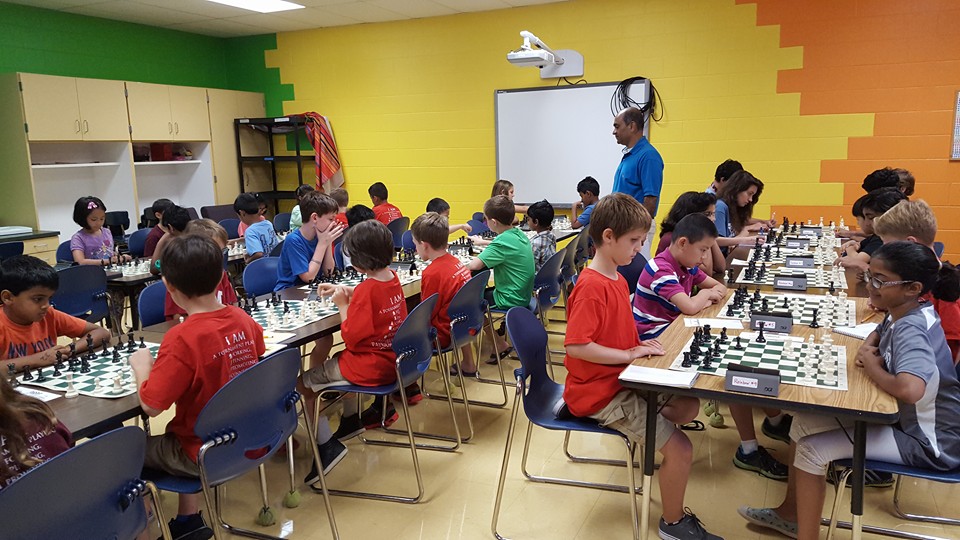
The non-rated section of a local tournament in Madison in 2016.
Play in a Rated Chess Tournament
Join the United States Chess Federation
A USCF membership is required in order to compete in any rated tournaments. The USCF also offers a family rate if you have multiple kids competing in tournaments. Many of you have expired USCF memberships since we were not able to play over the board last year, so this is a good time to renew your membership.
After the tournament concludes and the tournament report is submitted to the USCF, your child will receive a rating that will change as your child plays in more rated tournaments. Once your child starts playing in rated tournaments, he/she must continue playing in rated sections and cannot return to playing non-rated tournaments. You can check your child's rating at any time on the USCF webpage. You will be asked to provide your child's USCF membership number every time your child registers for a rated tournament. For tournaments hosted by the Madison City Chess League, once you set up your child's Participant Profile with your child's US Chess membership number, you will not have to provide it again.
Register for the Tournament
Most organizers require one to pre-register for a chess tournament by a deadline before the tournament is scheduled to begin in order to pay an early registration fee. After that deadline, registration fees can double. Some tournaments offer on-site registration, while others do not. Some offering onsite registration will require the student to take a bye and sit out the first round so that the tournament will start on time. It is important to read tournament flyers carefully to make sure you understand the registration requirements.
In Madison, the Madison City Chess League offers online registration for all tournaments at www.madisonchess.com.
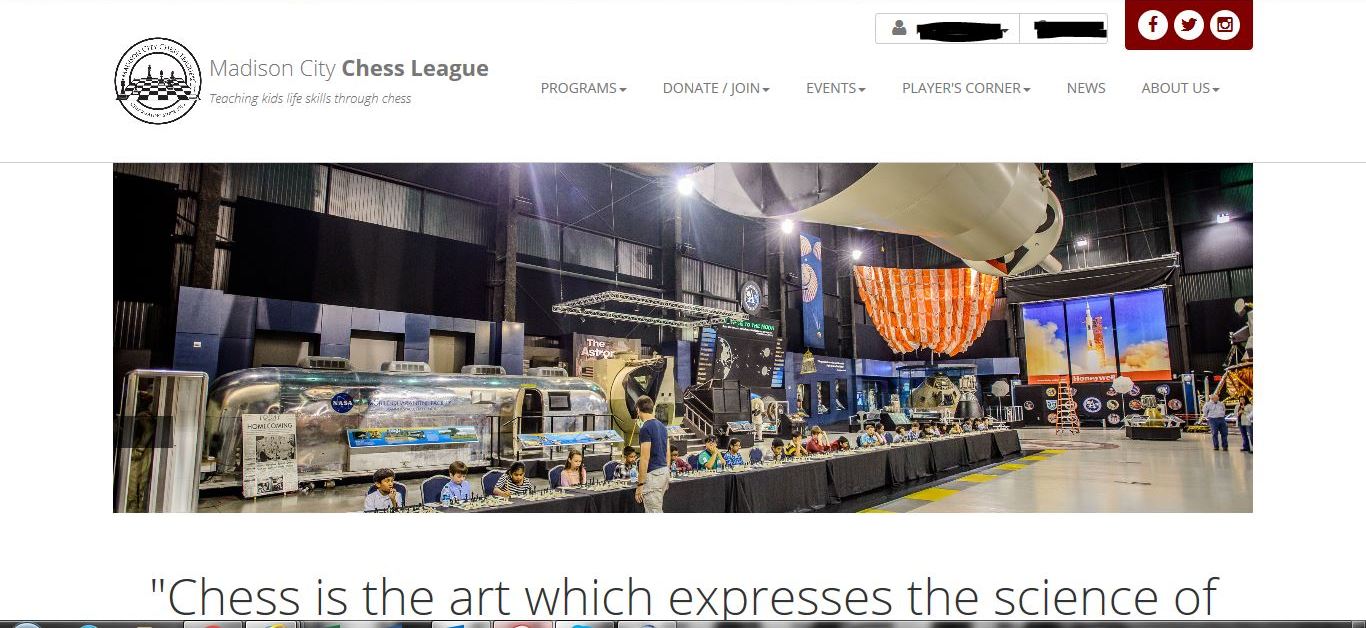
Player Meeting
Most tournament flyers and announcements designate a brief period of time before the first round begins for a Player Meeting. Make every effort to arrive early for the tournament and do not miss the Player Meeting. This is where the Chief Tournament Director is introduced and the major rules will be explained. Announcements are also made at this time and questions can be asked before the first round.
Follow the Rules
a. Touch Move
A rule that if a player touches a piece, he/she has to move that piece. If a player touches one of the opponent's pieces, that player has to capture the piece if it is possible.
b. Chess Notation
The United States Chess Federation rules require all competitors in rated sections to record their moves as they play. All tournaments conducted by MCCL enforce all USCF rules and require notation for all scholastic rated tournaments. If you are not familiar with how to record, read these articles (part 1 and part 2) and watch this video.
c. No Distracting Behavior
The USCF rules prohibit annoying or distracting one's opponent. Talking, making noise, tapping a pencil, or kicking the table repeatedly are examples of annoying or distracting behavior that can lead to penalties being imposed by the tournament director.
d. Tournament Director
The Chief Tournament Director (TD) is responsible for all play during the tournament and must see that the USCF rules are observed. Often assistant tournament directors serve as needed and can be called upon to resolve disputes and see that the rules are enforced in various sections of the tournament room. A player is allowed to appeal any ruling by an assistant TD to the Chief TD.

Chess Terms You Need to Know
Time Control - every chess tournament provides a time limit for each side to complete moves. For most local scholastic chess tournaments, the time control will be G30/d5 (which means each side has 30 minutes with a 5 second delay to complete his or her moves per game). That means the entire round could last just over an hour if both players use the allotted time. At national tournaments, the time control can be 90 or 120 minutes per side with a five second delay. Read the tournament flyer carefully to know the number of rounds and the time control.
Swiss System - A system for deciding who plays against whom in chess tournaments that are too big for everybody to play everybody (a tournament where everyone plays everyone is a Round Robin.). The Swiss system is usually used in big, open tournaments. The system works by having players with the same number of points play against each other, with the top half (by rating) in each score group playing the bottom half. Most local scholastic chess tournaments will state something like 5SS in the tournament flyer, which means 5 rounds using the Swiss System for pairings.
Bye - A bye is something a player requests when he/she is unable to play the game that round. Byes can be requested when one registers for a tournament and will usually result in 1/2 point for the first round a bye is requested. A tournament director can allow subsequent byes but usually for 0 points. If an odd number of players are in a section who are available to play in a particular round, and one is required by the tournament director to take a bye, that bye will usually result in 1 point.
Scholastic - for students usually in grades K-12. A Scholastic chess tournament is for students only--no adults.
